ADSactly Culture - The Byronic Hero
Many of us have at least heard the term of “Byronic hero”, even if we're not quite sure what it means. Well, let's first have a closer look at that. Byronic refers to the English poet Lord Byron who was famously dark and brooding, the typical handsome-but-dangerous baddie that so fills our romantic literature even today. As historian and critic Lord Macaulay so aptly put it,
a man proud, moody, cynical, with defiance on his brow, and misery in his heart, a scorner of his kind, implacable in revenge, yet capable of deep and strong affection
That's basically the Byronic hero and although he doesn't seem all too pleasant at first, the truth is he is. Because the Byronic hero is actually a variant of the classical Romantic hero, so you kinda have to like him, that's the whole point of the story.
Not convinced? Here are some examples of Byronic heroes we've come to know and love:
1. Mr Rochester
The charming but dark master of Thornfield Hall, Mr Rochester is definitely the first Byronic hero who comes to mind. Chances are you've seen at least one Jane Eyre adaptation and have probably read the book for school.
Quick recap, Jane Eyre goes to work as governess at Thornfield Hall, falls in love with the often mean and very moody Rochester. She saves him from a fire, he then runs away and brings home some posh woman to marry (I told you these heroes aren't very nice), but then Jane confesses her love and they decide to marry instead. Before the wedding can happen, Jane discovers a woman locked in the attic who turns out to be Rochester's mad wife. She then runs off for a while, heartbroken (as you'd expect, by now), considers marriage to some other dude, but in the end returns to Thornfield when she hears there's been another fire, in which Rochester's been severely injured, losing a hand and most of his sight trying to rescue his wife who actually started the fire and died. The two finally get the happy end they deserve.
There's something terrible but very appealing about Mr Rochester, which classifies him as the typical Byronic hero. The baddie with a heart of gold.
2. Jack Sparrow
Bet you didn't see that coming. You expected this whole post to just be about old literature nobody cares about, didn't you? I know you did. But the truth is, the Byronic hero is perhaps the most popular form of romantic hero there is today. Sure, we love the great guy with honest intentions, but he is a tad out-dated. There's something far more realistic in the Byronic, the mad, bad and dangerous type. Because more often than not, people are a bit like that themselves, regular Joes like you and me. You're far more likely to meet someone who has a bit of a dark side than a dashing prince.
And this brings us to our beloved pirate, Captain Jack Sparrow. Maybe like me, you grew up on the POTC movies, in which case you carry a deep affection for Jack (of course, that's partly Johnny Depp's fault). Something that seems to define the Byronic hero is a lack of care, an underlying daredevil who says screw it and throws himself head first.
Sound like Jack? I thought so, too.
Not all heroes have to be the same. Not all have to be so obviously brooding and sad. And behind all the antiques and jests, there is a certain darkness to Sparrow, a sad side.
3. Severus Snape
This is perhaps my favorite example because you wouldn't normally think of Snape. At first glance, he doesn't really seem like a hero at all, although of course, many HP fans would beg to differ. Like Mr Rochester, Snape too comes off as cold and mean, in the beginning. He is rude to Harry Potter, he is arrogant and seems to disregard pretty much anyone else. But in truth, that's not who he is at all. It is later revealed that as a boy, he was bullied by the very characters we are encouraged to see as good. He becomes a death eater and joins the dark side, as it were, because he craves belonging. And in the end, he is revealed to be a hero, after all. He is fiercely loyal to Harry Potter's mother and to the other people he loves. He is dark and brooding, clearly, but also capable of strong affection, and thus another great example of the Byronic hero.
4. Dr House
Okay, maybe you saw this one coming. He comes to mind when you say arrogant, dark and brooding, doesn't he? Gregory House comes across as terribly mean and unpleasant to everyone throughout the show. He alienates patients, although many later become fascinated by him and end up putting all their trust in him, because despite the cold exterior, he does have their best interests at heart.
He's a good guy, but a twisted good guy, as all the best ones are. He suffers greatly, which is something the show delves into in later series. He'd like to love, but also doesn't want to. He's awfully clever and uncompromising, which sets him apart from most people. Really, if you scroll back and read Macaulay's description again, he is the Byronic hero. Down to a T, I would say.
There are many examples of the Byronic hero, both in classic literature (see Heathcliff in Wuthering Heights) and modern day culture (see Edward Cullen in Twilight or V in V for Vendetta) and I've preferred to focus on the more modern examples in this post, because many more people will relate to those than to examples from two hundred years ago (great though they may be). Something I find utterly fascinating is how the Byronic hero has lived on through our literature and culture, making his way into the 21st century as one of the most beloved archetypes out there.
Oh, did I mention another famous Byronic hero by the name of Christian Gray? Yeah, apparently the dude so many women swooned after is also a Byronic hero. Surprise-surprise.
And you want to know why he's made it so far? Because the Byronic hero is in everyone. We're all tortured by self-loathing, guilt, doubt etc. Everything that plagues the Byronic hero plagues the reader/viewer as well. We don't love the Byronic hero because we're more likely to meet him (although we are), but because we are him, to some extent.
Authored by: @honeydue
Click on the coin to join our Discord Chat

Witness proposal is here:
Go To Steem Witness Page
In the bottom of the page type: adsactly-witness and press vote.

Use small letters and no "@" sign. Or, click here to vote directly!
Thank you!
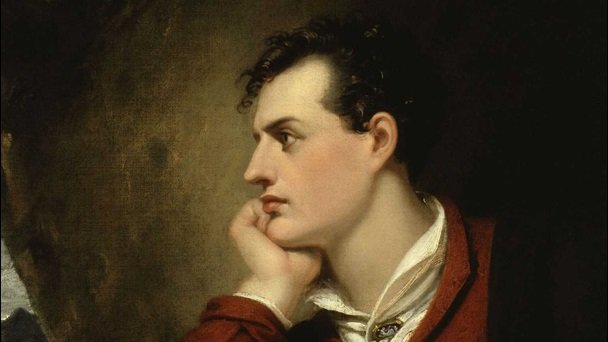

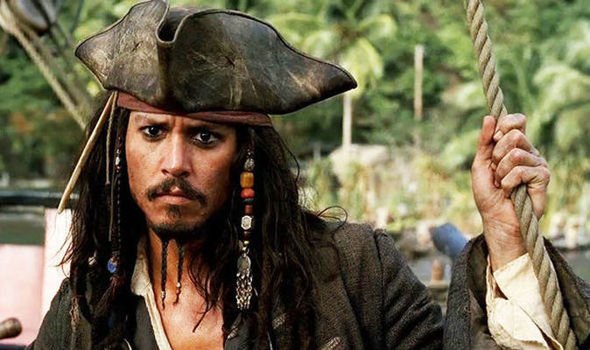
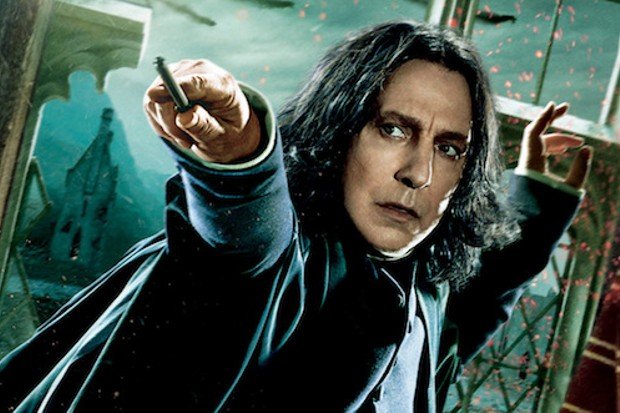
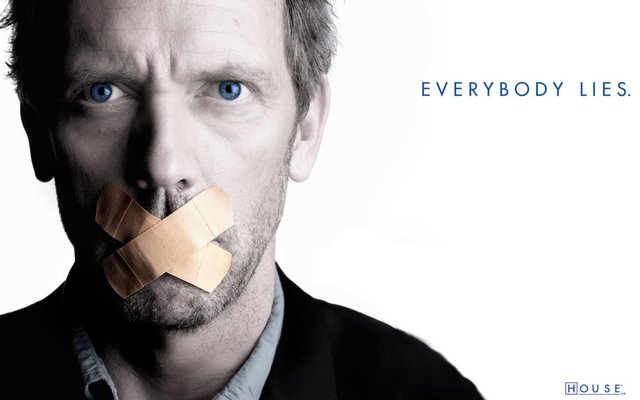
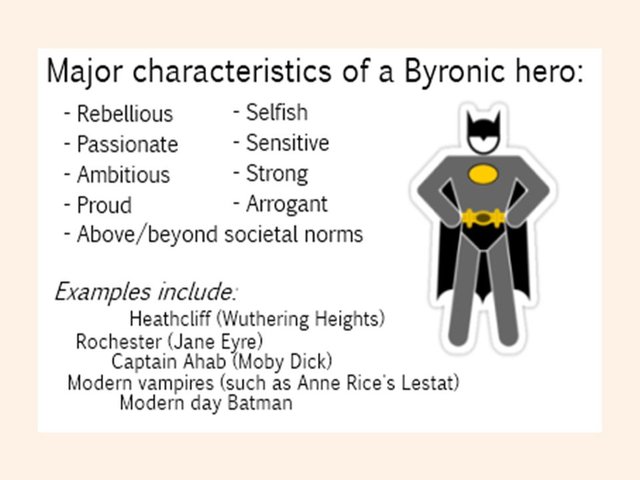
Ahh that's I take it as first learning of the day. Seriously I was not aware or not even heard this before. "Byronic Hero" made a lot of sense and meaning to me now. You detailed it with the best way by introducing us with the celluloid character through which people can easily relate too..I can call it as who has good physical charm but are not so good from inside...or who cares about ownself.
Posted using Partiko Android
im not a big fan of literature and i never heard the term of “Byronic hero” but those example works seems interesting :) i like it . by the way we have studied some poems of Lord Byron in literature at university. thanks for sharing; support :D
Your work is very interesting, @honeydue. The figure/theme of the hero is of great importance, and I have tried to follow it in its central manifestations. We know that his roots sink into the myth of ancient cultures, and then he went on to legend, folktales (wonderful or fairy tales), up to literature modern and cinema, of course.
The figure of the hero was idealized for a long time, making it almost infallible, blameless and pure. Contributions such as Cervantes' with Don Quixote, introduce the possibility of a being with faults (the so-called "antihero"). Thus this one-dimensional conception of the hero breaks down. I believe that with Byron, whose "heroes" resemble him, we arrive at a complex hero, more human, less flat, because is imperfect.
I remember of the cinema of my time, for example, the hero of Blade Runner, where that new type of hero is fulfilled.
Thanks for your nice, illustrative and updated post, @honeydue.
Culture sociology sees many, or most, interpersonal phenomena as inherently ethnic at some amount. To believe from the possibility of cultural sociology is to subscribe to the concept that every motion, no matter exactly how instrumental, reflexive, or perhaps coerced vis-a-vis it is external environment, is embedded to some extent in a horizon of affect and significance. In terms of analysis, sociology of tradition often attempts to go into detail some discretely cultural phenomena as being a product of interpersonal processes, while cultural sociology sees culture as being a component of information of social phenomena.
Hi, @adsactly!
You just got a 0.48% upvote from SteemPlus!
To get higher upvotes, earn more SteemPlus Points (SPP). On your Steemit wallet, check your SPP balance and click on "How to earn SPP?" to find out all the ways to earn.
If you're not using SteemPlus yet, please check our last posts in here to see the many ways in which SteemPlus can improve your Steem experience on Steemit and Busy.
Interesting Post
with this post we become more familiar with the Byronic hero figure. A figure who made a good look and filled with revenge for past failures. Everything he does can be done as an effort to pay for failures or disappointments that have never been fulfilled. In modern works we can see hero characters covered by past stories that are not encouraging even very sad. Just look at Batman figures, or Spiderman or other hero characters who have good characters but there are elements of violence that are stored.
Likewise in the figures you review this time the four figures have a story of loneliness, longing and disappointment so that he chooses the path of the hero as a redeemer for his past.
your post not just give information but also become guidance for our life.
We can reflect their character in ourselves.
Thank you @honeydue
Thank you @adsactly
Thank you steemit
Warm regard from Indonesia